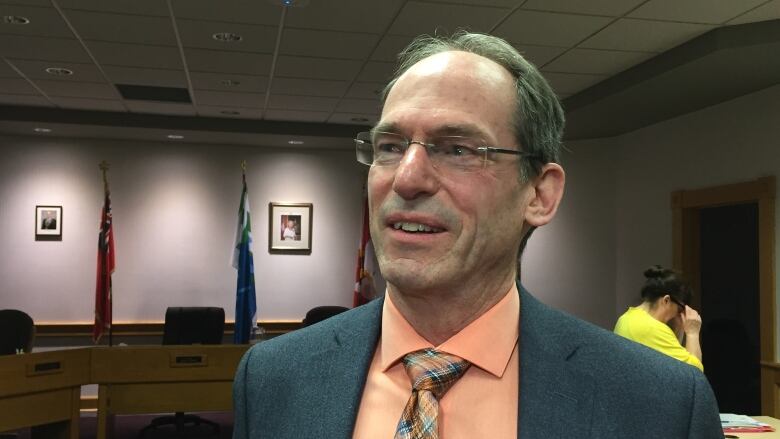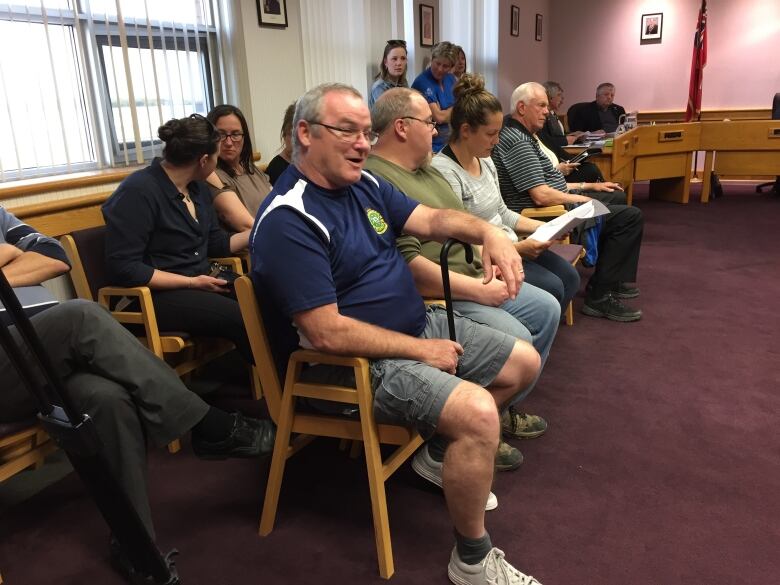Dryden, Ont., municipal police force to continue serving community
City of Dryden was looking at costing to switch to OPP

Officers with the Dryden Police Service (DPS) can start their shift Wednesday morning with a sigh of relief, knowing their jobs are safe, at least in the short-term.
Dryden city council voted to keep the DPS as the policing provider for the city of 8,000 in northwestern Ontario. Dryden is the only community, except Thunder Bay, to have its own municipal police service.
- OPP costing presentation in Dryden, Ont., leaves councillors with questions
- Dryden Police officers associations react to OPP costing
The decision itself was years in the making, with a police costing committee formed in June 2017, to examine if the city should change its policing service to the OPP. Dryden police has served the community for more than 100 years.
The decision was strictly financial, with all councillorsnoting there were no concerns about the quality of policing from both Dryden police and the OPP.
"This is the most difficult decision, as a councillor, I've had to make so far," said Coun. Norm Bush.
"From my perspective, I think we are two years too early to properly take advantage of this opportunity. After 2020, the city could handle these transition costs."
Bush said the upfront costs to switch to the OPP, which would pay for equipment as well as things like severance, could be in the $4 million range. It's just too much money to spend, he said, when the city is still paying down debt for a couple more years.

"On one hand, we can't afford to make this investment decision due to a lack of immediate cash, but on the other, we can't afford to miss it," said Dryden Mayor Greg Wilson.
Wilson, the lone vote rejecting the OPP costing model, said he heard an even split from people on what to do when it comes to policing.
He said there is "little room for sentimentality" in the municipal budget, and the desire to keep the DPS simply because of its past impact on Dryden could not be counted as a reason to stick with the municipal service.
Wilson noted he spoke with former Kenora Mayor David Canfield about the issue; Kenora also switched over to the OPP within the last decade. Wilson said Canfield acknowledged that the decision and transition were difficult, but it was the right choice for his community.
- Dryden, Ont., considering switch to OPP for policing
- Dryden policing survey shows support for keeping municipal force
Coun. Bush noted he's heard from senior-level provincial politicians who have scoffed at the fact the city faces financial challenges, but still has its own municipal force.
"'You can't be in that bad of shape if you can walk away from a million dollars a year opportunity to reduce your costs' this is not something I'm dreaming up," he said, referring to what he has heard from provincial ministers at recent conferences.
Costing could happen all over again
Officers with the DPS now want to put this long process behind them, even though it was suggested at council it could come up again at the next term of council, when Dryden has its financial house in order.
"Now more than ever, we all need to work together," said Ann Tkachyk, the President of the Senior Officers Association for the Dryden Police Service.
"Regardless of things that were said, or misconceptions, or perceptions by people, now is seriously the time that if we do not partner and do not discuss how our communities are going to be affected regarding community wellbeing, we're going to be missing the boat."
"What we learned through this whole process is that those two models are completely different, and the priorities are different," she continued.
"The fact that you have a municipal police service provides you with a front line, dedicated police service to that community, as the OPP model, through the OPP costing is through a provincial perspective with provincial priorities."












_(720p).jpg)


 OFFICIAL HD MUSIC VIDEO.jpg)
.jpg)



























































































